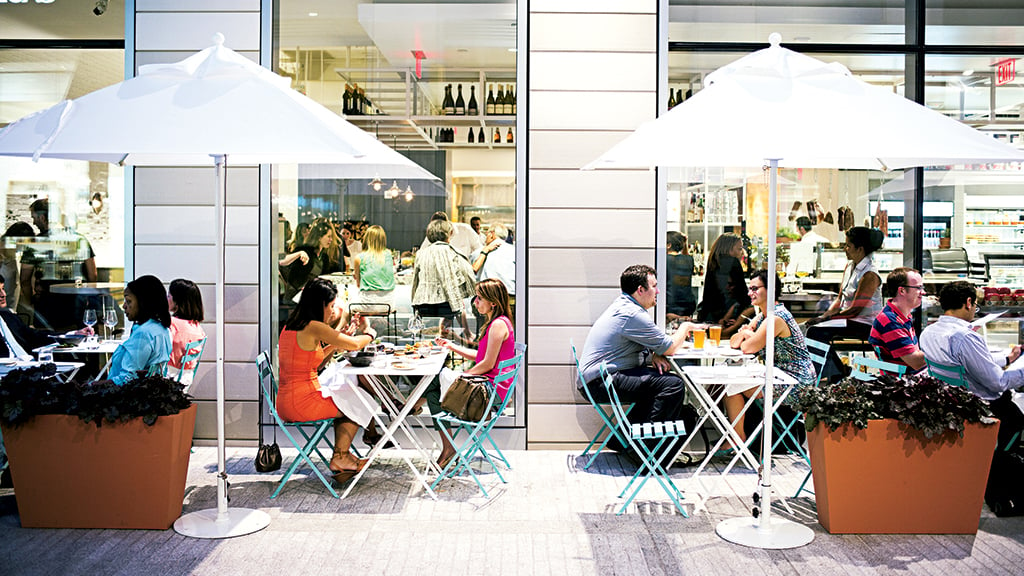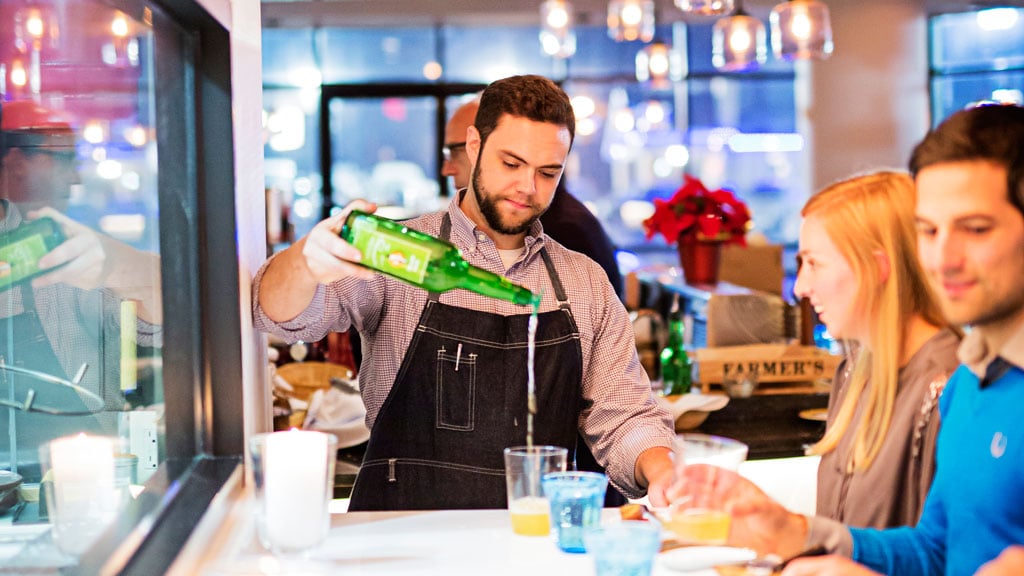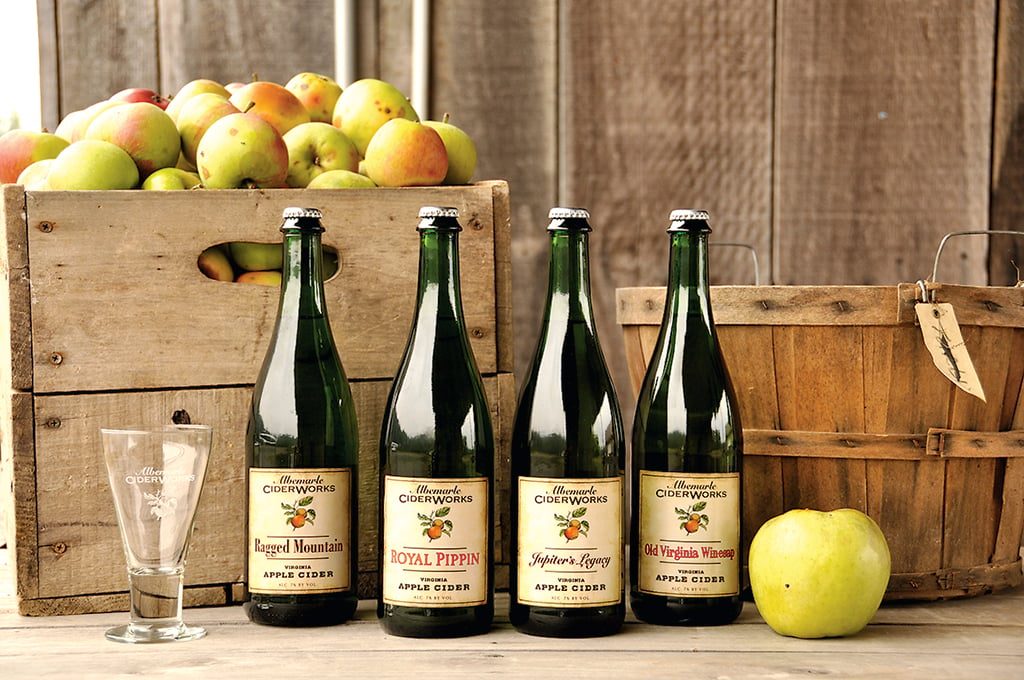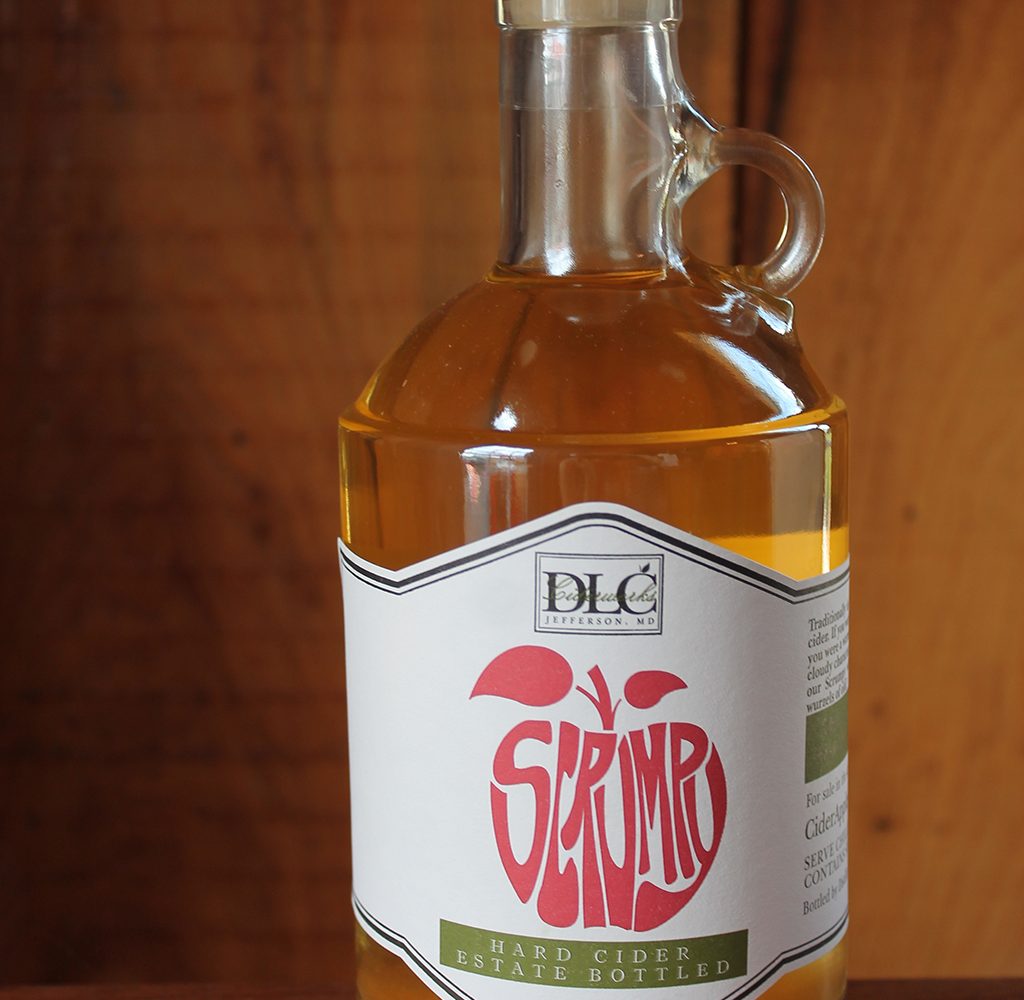By Joan Nathan
When Abe Pollin yearns for the whitefish, kippered salmon, and corned beef of his childhood, he goes to Krupin's Deli.
When Natan Sharansky, the famous Russian refusenik turned Israeli Knesset member, visits Washington, he holds his power lunches at the city's only strictly kosher restaurant, the Center City Cafe.
The president's national-security adviser, Sandy Berger, is more reflective of the tastes of the 165,000 Jews living in Washington: When he craves a Jewish pick-me-up, he goes straight home for his wife Susan's chicken soup with matzo balls.
"For most Jews in Washington–especially those of us who follow the laws of kashrut–we find the best Jewish food in our own homes," says Jeffrey Wohlberg, senior rabbi at Adas Israel Hebrew Congregation. "This is not to say there isn't good Jewish food in restaurants here, but the home has been the center of Jewish life wherever Jews have lived, and food is an integral part of that tradition."
For all Jews, religious or not, cooking stems from kashrut, the dietary laws given to Moses on Mount Sinai and the rules governing foods found in the biblical books of Leviticus and Deuteronomy.
"For some Jews it is necessary to be scrupulous about every morsel they consume, while for others it's not a matter of whether the food is strictly kosher but whether it reflects their cultural heritage," says Rabbi Wohlberg.
Like the laws of kashrut, Judaism is rooted in the land of Israel. What is remarkable about Jewish food, as opposed to Italian or French cooking, which have evolved on one soil for thousands of years, is its journey after it left its homeland. With the destructions of the Temple and the uprooting of the Hebrew population, Jewish food habits have been scattered throughout history and across the world. Throughout millennia, carrying their Talmud and their Torah, Jews adapted the local cooking to their dietary laws whether they were living in Babylonia, Morocco, Turkey, Russia, Poland, or Germany.
Many Jewish Washingtonians eat the way most Americans eat during the week. Their only Jewish meal is made and served on Friday nights as families gather to welcome the sabbath by sharing challah (traditional egg bread often baked in a twisted form and usually slightly sweet), chicken soup, brisket, and kugels (puddings). Holiday meals, such as Rosh Hashanah and the Passover Seder with its special traditions, also evoke food-laden memories of family and friends.
THE first Jews living in Washington came here from Germany in 1840. When Lois Hechinger England, whose great-great-grandfather, Leopold Gassenheimer, was one of these settlers, brings out her heirloom recipes for the Jewish holidays, they reflect southern German tradition. Her Passover matzo balls are made from broken-up pieces of soaked and dried matzo, seasoned with dried ginger–a recipe that predates the boxed Manischewitz matzo meal of the 1930s. She also makes sweet-and-sour string beans, chestnuts and prunes, and sauerkraut, all tell-tale testimony to the Hechinger-Gassenheimer family origins.
Unlike Lois England, most Jewish Washingtonians–and their family recipes–are descended from the 2H million Jews who immigrated to America from Eastern Europe between 1881 and 1921. These Jews sought a freer life. They came here carrying their brass candlesticks, mortars and pestles, pots and pans, and centuries-old recipes for cholent (the slow-simmering overnight Sabbath stew of meat, potatoes, and beans), tzimmes (a sweetened, baked combination of vegetables or meat and vegetables, often with dried fruits), and, of course, bagels and pastrami. The immigrants primarily settled in New York, Chicago, Philadelphia, and other large cities and also in the port city of Baltimore.
Because Washington was not an industrial city, most Jews came here later, at the time of the New Deal and World War II, when government expanded and with it opportunities in business and building. According to the Encyclopedia Judaica, the Jewish population of greater Washington rose from about 20,000 in 1945 to an estimated 110,000 in 1970.
This Jewish population has always had markets offering kosher food. Jac Lehrman, the son of Russian immigrants, came to Washington in 1936 from Harrisburg, Pennsylvania, where he and his family were in the wholesale-grocery business. Nehemiah M. Cohen, a Jerusalem-born teacher and schochet (ritual slaughterer), wanted to open a grocery store in Washington with the Lehrmans. After checking into Cohen's financial background, Jac Lehrman cautioned his father that N. M. Cohen had previously filed for bankruptcy.
" 'I am willing to take a chance on any man who speaks such beautiful Hebrew,' responded my grandfather," says Heidi Lehrman Berry. The two opened the first Giant grocery store on Georgia Avenue above Park Road; it was larger than the prevailing mom-and-pop stores of the period. "Because the Giant stores were Jewish-owned, you could always find Jewish goods there like matzo, challah, and macaroons," observes Heidi Berry, for whom the bakery sections were originally named. Today, the now-Dutch-owned Giant chain has gone a step further. It has recently published a list of all the kosher products sold in its stores.
In Washington, traditionally a city that entertains at home, Jewish cooking seems to be on the rise. Though Posin's, the last kosher bakery, delicatessen, and catering shop on DC's Georgia Avenue, recently closed, three kosher supermarkets in the suburbs are flourishing: Shalom Strictly Kosher Meats and Delicatessen in Wheaton, Katz Kosher Supermarket in Rockville, and Shaul's Kosher Market in Kemp Mill. Ba'alei teshuvah ("returnees to the faith") and modern Jewish families that want to keep kosher in their own manner have led this revival of interest in kosher cooking.
In the last few years, the number of packaged foods labeled "kosher pareve" (meaning no dairy or milk) has increased greatly. They appeal not only to religious Jews but also to Moslems, the lactose-intolerant, and vegetarians. Because of this growing market, companies realize that kosher certification increases their business. The more than 100,000 kosher products on the market include most Pepperidge Farm cookies, most General Mills cookies and mixes, Absolut Vodka, Bazooka bubble gum, and just recently, Oreo cookies.
Kosher supermarkets face a challenge from regular supermarkets that include kosher products and often entire kosher sections. Larry and Steven Dekelbaum, sons of the owners of Shalom's, are meeting this challenge by expanding their offerings. Steven, 29, a graduate of the Culinary Institute of America in Hyde Park, New York, has added a vast in-store basement bakery to the operation. When his brother Larry, 32, wanted to learn how to make Israeli falafel and shwarma for Max's, the family's kosher restaurant next door to the supermarket, he went to Israel and spent several hands-on days in a restaurant in Haifa. Returning to the United States, he brought with him Momi Houmran, an Israeli Arab who now makes what is easily the best falafel in town as well as shwarma, mango hot sauces, and pickles. His clientele includes both Jews and non-Jews. "We are trying to offer the kosher consumer everything that is available to the nonkosher eaters," says Larry, who has recently started curing his own corned beef and making carryout pizzas.
The institution that defines Jewish cooking for many people is the New York Jewish deli. Brooklyn-born Stephen Joel Trachtenberg, president of George Washington University, who has been known to messenger bottled egg creams to friends, often orders pastrami and corned-beef sandwiches from New York's Second Avenue Deli for senior staff meetings. "I have been living here on and off for 25 years, and I still have to go back to New York for a real Jewish nosh," he laments.
Does Washington have a kosher-style New York deli? Probably the closest approximation is Krupin's. Brooklyn-born Mel Krupin, the former maitre d' of Duke Zeibert's, makes potato pancakes and blintzes, brings corned beef and smoked salmon from New York, and bakes the great New York-style black-and-white cookies made famous by Jerry Seinfeld and his cronies. (The night of the last Seinfeld episode, Krupin's sold 180 of the large and 267 of the small cookies.) A "kosher-style" restaurant, Krupin's sells such dishes as corned beef and pastrami along with cheesecake, a no-no in a strictly kosher deli where milk and meat cannot be served at the same meal. But Krupin's, like the former Duke Zeibert's, is a place where you can relax, kibitz with old friends, and eat homestyle food like sweet-and-sour cabbage soup, matzo-ball soup, and hot brisket.
Jewish restaurants are certainly part of Washington's culinary history. Like the Giant Food families, the Young family, looking for opportunity, arrived in Washington during the Depression. "My brother Paul came from Philadelphia to visit a friend who was going to the National Law School at 13th and H, right near the Times Herald and the Daily News," says David W. Young, 78. "He spotted a store across the street, we scraped up some money and opened the Rumanian Inn in December, 1935."
The restaurant moved in 1960 to Connecticut Avenue, where it was called Paul Young's until it was sold in 1980. "Although we served chopped liver, gefilte fish, and blintzes, a big part of our trade was not Jewish,
"One of the popular items in those days was kishke [beef or fowl casing or derma stuffed with a savory filling of matzo flour, chicken fat, and onion and then roasted]," he continues. "I have not tasted a piece of kishke since my mother passed away in 1971. People don't care about this kind of food today. People think of Jewish food as cholesterol-laden, vein-clogging, and weight-producing food–which is basically what it is."
"People today don't want heavy sauces," says Sue Fischer, head of the Sue Fischer Division of Catering by Windows, who has done kosher catering for 22 years. "I think kosher food is following the trends of the outstanding restaurants today–beautifully fresh ingredients but cooked in a synagogue with rabbinical supervision."
Today, with a plethora of Jewish cookbooks and well-traveled Jewish cooks, Jewish cooking in Washington has an increased flavor of the Diaspora. At the dairy Center City Cafe, located in DC's Jewish Community Center, chef David Dahan, born in Morocco and raised in Israel, turns out such dishes as the roasted-pepper-and-eggplant salads of his native Meknes as well as marinated and grilled mushrooms with balsamic vinaigrette and a confit of onions. At the Royal Dragon Chinese Restaurant in Rockville, the Iranian owners serve a watered-down kosher Persian buffet on Wednesday nights and include in their mostly Chinese menu matzo-ball soup and hummus. Both of these strictly kosher restaurants, closed on the Sabbath, have mashgichim (ritual observers) on the premises at all times to supervise the cooking according to Jewish law.
Like David Dahan and the owners of the Royal Dragon, Jewish home cooks in Washington are adding to their repertoires. Local hairdresser Jean Paul Amsellem, owner of Salon Jean Paul, goes home to Moroccan chicken with olives and an array of cooked salads that his wife, Nicole, prepares for Friday-night dinner. CNN's Wolf Blitzer, whose parents are from Poland, enjoys his wife Lynn's brisket and noodle kugel. And Cokie Roberts, whose husband, Steve, is Jewish, makes chopped chicken liver for Passover Seder according to a recipe given to her by Hyman Bookbinder, retired lobbyist for the American Jewish Committee. She adds a dash of Tabasco, her own Louisiana touch.
Probably the most authentic boost to Jewish culinary diversity on Washington's kosher-food scene, however, comes from the Magen David Sephardic Congregation and its 230 families, who pride themselves on their cooking heritage from the Middle East, Europe, and Latin America. The synagogue, which just moved into a new building on Woodglen Drive in Rockville, is holding a series of fundraisers highlighting Middle Eastern foods, spurred on by Rabbi Hayyim Kassorla and his wife, Jodi, a kosher consultant.
Ida Dana, a native of Istanbul and one of Washington's finest Turkish cooks, hosted one recent tea party featuring Turkish and Sephardic delicacies. "I included dishes such as borekas de berencena, individual pastries stuffed with eggplant, and bulemas, rosette-shaped spinach-filled phyllo, dishes we learned from our Sephardic ancestors who came to Turkey from Spain during the Inquisition, as well as the baklava and kataif our Turkish neighbors and friends taught us," says Dana, 64. In the tradition of her country, Dana and her friends joined forces to prepare everything that was served that day.
"My house is always open for Jewish students from Turkey for Friday-night dinners," she says. "But this time it was different. Sharing my food and my traditions with Moroccan, Syrian, and Egyptian Jews was uplifting. Even though they were from the Middle East and Jewish, this was new food for them." Some of Dana's recipes are included in The Sephardic Gourmet Cookbook, edited by Jodi Kassorla for the congregation. "What a spiritual and culinary joy it is," says Rabbi Kassorla, "to be rabbi at this congregation in our nation's capital with its 'Heinz 57' varieties of Jewish culture and cooking."
What is Kosher?
One of the more commonly known laws governing kosher food is the separate preparation and consumption of dairy dishes and meat dishes, following the biblical prohibition against seething a kid in its mother's milk (Deuteronomy 14:21). Although the reason for the prohibition is unknown, the law may have kept the ancient Hebrews from participating in pagan customs of animal sacrifice. Neutral (or pareve) food such as eggs, fish, fruits, and vegetables may be eaten with either milk or meat. Two sets of utensils and dishes, one for milk meals and one for meat, are used, stored, and cleaned separately. Between a milk meal and a meat meal, one must rinse out the mouth or eat a morsel of bread. But if the meat meal precedes the milk meal, the normal waiting requirement is three to six hours.
According to ancient dietary laws, there are many distinctions connected to raising, slaughtering, and eating kosher meat, fowl, and fish.
*Meat must be raised on kosher feed, and the only animals that can be eaten must have completely cloven hooves and chew their cud, such as beef, venison, and lamb (Leviticus 11:3). Pork does not meet these requirements.
*Edible fowl include chicken, turkeys, quail, squab, Cornish hens, and doves.
*Fish must have both fins and scales that are detachable from the skin; thus, all shellfish, such as shrimp, lobster, scallops, crabs, clams, and oysters, are forbidden, as well as monkfish and catfish.
Further restrictions govern the way animals are slaughtered. These rules, which derive from the ritual sacrifice of animals at the Temple in Jerusalem, assure that no more pain than necessary is inflicted on the animals. After slaughtering, all blood must be removed from the meat, again prescribed in the Bible, first by soaking it in cold water, then covering it with coarse salt. Then the salt is removed and the meat soaked three more times in fresh cold water.
For more information on the laws of kashrut and kosher establishments call the Rabbinical Council of Greater Washington (202-291-6052) or the Jewish Information and Referral Service (301-770-4848).
Kosher and Jewish-Style Restaurants, Supermarkets, and Bakeries in Washington
Kosher
Center City Cafe, Jewish Community Center, 1529 16th St., NW; 202-387-3246. Fish and dairy restaurant.
Dunkin' Donuts, 2006 Veirs Mill Rd., Silver Spring (301-762-5864) and Cabin John Shopping Center, Potomac (301-983-8267).
Katz Kosher Supermarket, 4860 Boiling Brook Pkwy., Rockville; 301-468-0400. The deli has a few tables.
Kosher Express, 5065 Nicholson La., Rockville; 301-770-1919. Moroccan Israeli falafel and pizza menu with Moroccan salads.
Kosher Pastry Oven, 2521 Ennalls Ave., Wheaton; 301-946-0159. Israeli-Moroccan pastry chef/owner makes great challah and French-style pareve pastries, used by caterers like Ridgewell's for kosher events. Also has a line of totally kosher-for-Passover desserts.
Max's Kosher Cafe and Market Place, 2319 W. University Blvd., Wheaton; 301-949-6297. Casual restaurant with great falafel, home-cured corned beef, shwarma, hot dogs, and chickens. Glatt kosher meat.
Nut House, 11419 Georgia Ave., Wheaton; 301-942-5900. Kosher pizza.
Royal Cafe, George Washington University Hillel, 2300 H St., NW; 202-293-1709. Kosher Hillel-run food-service restaurant.
Royal Dragon, 4840 Boiling Brook Pkwy., Rockville; 301-468-1922. Iranian-owned kosher Chinese restaurant.
Schmell and Azman Kemp Mill Kosher Bakery, 1351 Lamberton Dr., Silver Spring; 301-593-4785. Branch of a Baltimore bakery with pareve kosher baked goods and a good babka.
Shalom Strictly Kosher Meats and Delicatessen, 2307 W. University Blvd., Wheaton; 301-946-6500. Glatt kosher butcher and groceries, good homemade baked goods including great kichel with chocolate chips, chocolate babka, and horns.
Shaul's Kosher Place, 1319 Lamberton Dr., Silver Spring; 301-593-1800. Glatt kosher butcher and grocer.
Jewish-Style
Bagel City, 12119 Rockville Pike, Rockville; 301-231-8080. The Disney World of bagel places. Owner Irving Zlotnick, from one of the oldest bagel-baking families in America, is back from Florida to take over the business again.
B.J. Pumpernickel's, 18169 Town Center Dr., Olney; 301-924-1400. Kosher-style deli with attitude. Great pickles, sweet-and-sour cabbage soup, and deli sandwiches.
Breads Unlimited, 6914 Arlington Rd., Bethesda (301-656-2340), and New Yorker Bakery, 8313 Grubb Rd., Silver Spring (301-585-8585). Two bakeries with the same owners. Good challah and some kosher foods.
Celebrity Delly, 12215 Nebel St., Rockville; 301-881-4422. Kosher-style deli with homemade knishes, matzo-ball soup, and great corned beef.5
Duke's Deli, Montgomery Mall, Bethesda; 301-365-0645. Fast-food deli run by the late Duke Zeibert's daughter Terry Sanker. Homemade chicken soup with matzo balls and chopped liver made fresh daily.
Felix Restaurant, 2406 18th St., NW; 202-483-3549. Chef David Scribner makes chicken soup and brisket for Friday-night dinner and throughout the weekend.
Krupin's, 4620 Wisconsin Ave., NW; 202-686-1989. Kosher-style deli with great pickled herring, black-and-whites, brisket sandwich, cabbage soup.
Misha's Deli, 210 Seventh St., SE; 202-547-5858. Traditional Russian takeout with house-made soups, gefilte fish, chopped-liver pâté, and New York-made knishes.
Parkway Deli, 8317 Grubb Rd., Silver Spring; 301-587-1427. Kosher-style deli with Israeli food.
Potomac Village Deli, 9812 Falls Rd., Potomac; 301-299-5770. Kosher-style deli with turkey fresh-roasted on the premises and great chicken soup with matzo balls.
Tel-Aviv Cafe, 4869 Cordell Ave., Bethesda; 301-718-9068. Israeli food with a Moroccan twist.
Weissblatt's Delicatessen, 7913 Tuckerman La., Potomac; 301-299-1740. Features stuffed cabbage, pastrami, and matzo-ball soup prepared fresh daily.
What's a Bagel, 3513 Connecticut Ave., NW (202-966-8990) with four other locations, and Bethesda Bagel, 4819 Bethesda Ave., Bethesda (301-652-8990) with five other locations, make old-fashioned, hand-rolled bagels, the best in town.
Woodside Delicatessen, 9329 Georgia Ave., Silver Spring (301-589-7055) and Woodside Deli, 12958 Middlebrook Rd., Germantown (301-972-6812). Owned by Russian-born, Israeli-raised Paul Zlotnicki, who plays the accordion every Saturday night in a group with Israeli and Russian singing. Triple-layer deli sandwiches, homemade falafel, meatloaf, house-made chicken soup with (like most delis in the city) frozen commercial matzo balls.


















